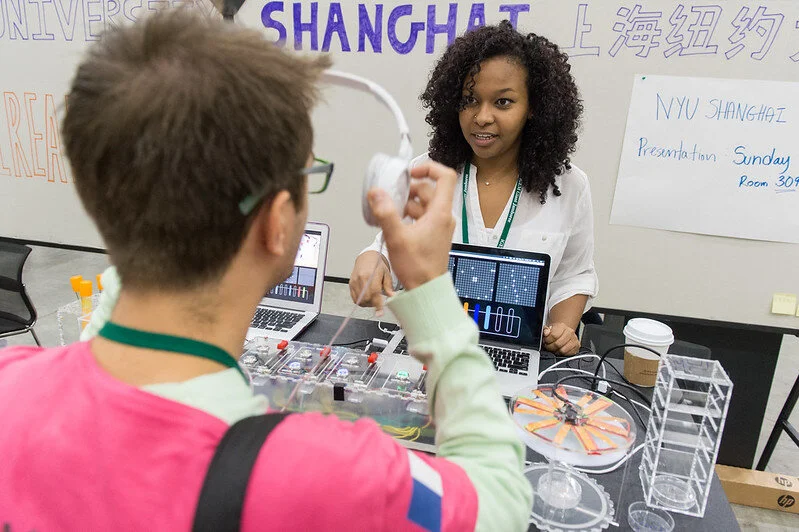Announcing the Winners of the iGEM 2021 Safety & Security Grants
At iGEM, we don’t see safety and security as just a set of rules to follow or a list of dangers to avoid. Rather, we think you can’t know whether you’re engineering biology to be good for the world if you haven’t thought about engineering it to be safe and secure.
Who is supposed to think about it? We expect everyone in our community, especially teams themselves, to take responsibility for identifying and managing risks from iGEM projects. Our Safety and Security Program gives teams a set of safety rules and policies to make it clear what we expect, offers resources on safe and secure project design, lab work, transfers, and communication, and reviews safety forms from every team.
If your team identifies a risk, what can you do about it? It depends a lot on the risk, of course. Maybe you’ll decide not to pursue parts of your project, or work in a higher-containment lab, or seek additional expert supervision. One thing we’d love to see more of, though, is teams managing risks through new innovations in applied safety and security! How can you creatively accelerate the evolution of synthetic biology towards benefits and away from risks? This is the kind of thorny technical challenge that iGEM teams excel at!
To encourage iGEM 2021 teams to take on this challenge, iGEM’s Safety and Security Program offered 5 grants of $5000 each to accelerate technical progress in biosafety and biosecurity. A total of 67 teams applied with creative and innovative proposals. After a highly competitive process, we selected 5 teams based on how well their proposal advanced applied biosafety and biosecurity, how realistic their approach was, and the extent to which the grant enabled work that wouldn’t otherwise be possible.
Please join us in congratulating these 5 teams in winning an iGEM 2021 Safety and Security Grant:
ABSI Kenya
ABSI_Kenya from a community lab in Nairobi, Kenya is developing a user-friendly home biosensor for local waterborne diseases. The grant will support containment strategies for their biosensor, either by implementing it as a cell-free system or by introducing a multi-layered kill switch. The team will also upgrade the laboratory in which they are working with new equipment, including new safety equipment.
Bulgaria
Bulgaria from Sofia University and the Technical University of Sofia in Sofia, Bulgaria is using wastewater metagenomics to characterize the genetic determinants of antibiotic resistance. They plan to synthesize some of the novel resistance factors found in their metagenomic data and test them in E. coli. The grant will support their work to run those tests with a re-engineered stop codon, preventing potential environmental escape of these novel factors.
KUAS Korea
KUAS_Korea from Korea University in Seoul, Korea is building upon work by UFlorida 2017 to treat chytridiomycosis, a fungal disease harming amphibians around the world. To prevent unintended environmental spread of their fungicidal bacteria, the team plans to test a quorum-sensing-based kill switch, or to place fungicide production under an inducer that responds to molecules on the amphibian’s skin. The grant will support purchasing reagents for fluorescence-based cell counting to empirically characterize the efficacy of the kill switch.
Paris Bettencourt
Paris_Bettencourt from the Center for Research and Interdisciplinarity (CRI) in Paris, France is working on minicells for cheap and safe in-house enzyme production in low- and middle-income countries. They will run experiments to characterize their ability to produce minicells, and the ability of the minicells to produce their target enzyme (Taq polymerase). The grant will support these experiments, as well as efforts to replicate their pilot hardware and distribute these models to several countries to test the reproducibility of their results.
UMaryland
UMaryland from University of Maryland in College Park, USA will follow protocols from the Purdue 2016 team to encapsulate their phosphorus biosensor and reclamation system in a xerogel silica bead. The grant will support a number of experiments: empirically measuring the escape rate of their engineered E. coli from the beads, testing different promoters to selectively release phosphorus from the reclamation system, and engineering auxotrophic dependence into the E. coli to lower the escape rate.
This year, all iGEM 2021 teams that nominate themselves will be considered for the Safety and Security Award, a special prize awarded by the Safety and Security Committee to recognize teams demonstrating excellence in managing risks associated with synthetic biology and working safely and securely inside and outside the lab. And all iGEM 2021 teams are invited to participate in the iGEM Risk Assessment Study. Learn more and sign up to participate here.
We’re looking forward to seeing the progress made by the iGEM 2021 teams in engineering solutions for the safe, secure and responsible use of synthetic biology!







